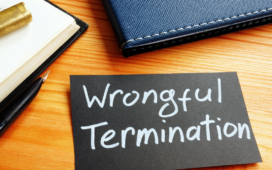Winning a lawsuit is a big win for any creditor—but it doesn’t guarantee payment. In fact, some judgments go completely uncollected, not because the debtor is “judgment-proof,” but because the creditor made critical mistakes after the case was over.
If you’ve been awarded a judgment in court, you’ve already done the hard work of proving your claim. But to actually recover what you’re owed, you need to avoid the common traps that can derail the collection process.
Here are the top 5 mistakes creditors make after winning a judgment—and how to avoid them.
1. Waiting Too Long to Act
Time is not on your side. Most states allow judgments to be enforced for a specific number of years—often between 5 and 20. But if you wait too long and miss the renewal window, you could lose your right to collect.
Even if you don’t plan to collect immediately, you should:
- Record the judgment lien (especially for real estate)
- Calendar renewal deadlines
- Monitor interest accrual
- Consider enforcement actions early—especially if the debtor is showing signs of financial instability or asset transfer.
Pro Tip: Don’t assume the debtor will pay voluntarily. Be proactive.
2. Failing to Locate the Debtor’s Assets
One of the biggest hurdles in judgment collection is simply finding where the money is. Many creditors rely on outdated contact information or assume the court will do the work of asset discovery for them. It won’t.
If you can’t find the debtor’s employer, bank accounts, or property, you won’t be able to seize anything.
Solutions include:
- Hiring professionals to conduct skip tracing
- Running asset searches
- Using post-judgment discovery tools (e.g., interrogatories, depositions, subpoenas)
Pro Tip: A judgment collection attorney often has access to databases and investigative resources that the average person does not.
3. Trying to Collect Without Legal Guidance
Trying to enforce a judgment on your own can lead to missed opportunities, procedural mistakes, or even violations of the law. There are very specific rules around:
- Wage garnishment limits
- Exempt vs. non-exempt assets
- Notice requirements
- Filing deadlines and local court procedures
Without legal guidance, creditors often file the wrong documents, miss critical deadlines, or pursue collection methods that aren’t legally available in their jurisdiction.
Pro Tip: Even one wrong step can delay or jeopardize your collection efforts. Get legal help early.
4. Ignoring Debtor Behavior and Red Flags
Some creditors assume the debtor will remain in the same financial condition indefinitely. But if the debtor suddenly:
- Sells a house
- Receives an inheritance
- Opens a new business
- Wins a settlement
—you may have a limited-time opportunity to collect. If you’re not paying attention, those assets could disappear before you take action.
Watch for red flags like:
- Transferring assets to family or a business
- Moving bank accounts
- Changing jobs to evade garnishment
Pro Tip: Monitoring the debtor’s financial activity—even passively—can uncover collection opportunities that didn’t exist at the time of the judgment.
5. Giving Up Too Soon
Some creditors assume a judgment is uncollectible if the debtor doesn’t pay right away. But many judgments are collectable months or even years later, especially as interest accumulates and the debtor’s financial situation changes.
It’s common for a debtor who was once “judgment proof” to eventually:
- Gain employment
- Purchase property
- Receive settlement funds
- Inherit assets
Judgments can often be renewed and enforced later—even if they seem dormant at first.
Pro Tip: Think long-term. A patient and strategic approach can pay off significantly down the road.
Final Thoughts: Winning Is Just the Beginning
Securing a judgment in court is a crucial legal victory—but unless you take the right steps afterward, you may never see a dime. Avoiding these five common mistakes can mean the difference between a paper judgment and actual recovery.
If you’ve won a judgment and want help collecting what you’re owed, don’t go it alone. A judgment collection attorney can help you identify assets, navigate legal procedures, and build a recovery strategy that works—now and in the future. We recommend Judgement Collection Attorney.












